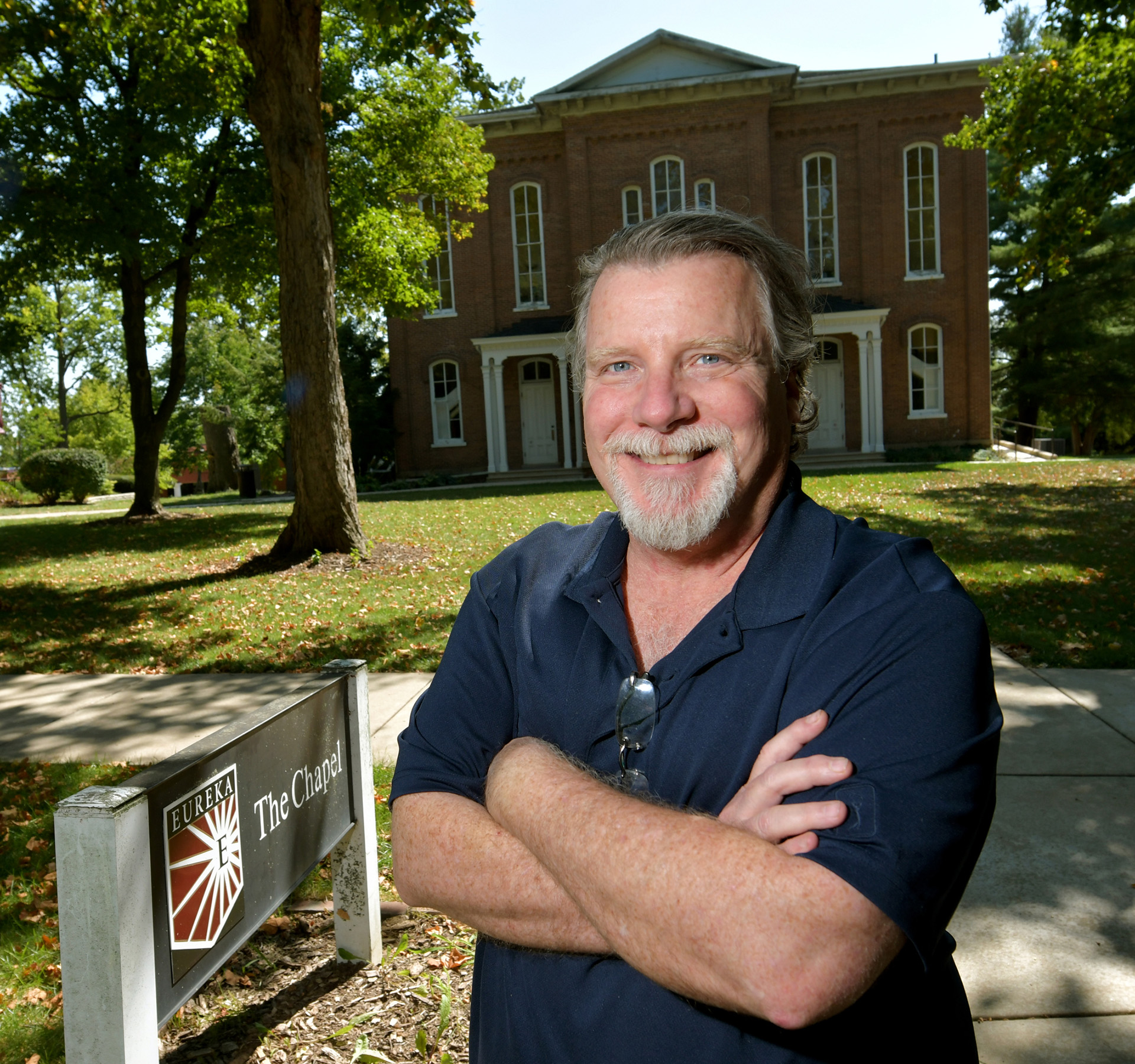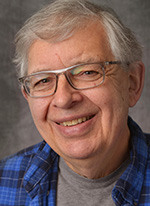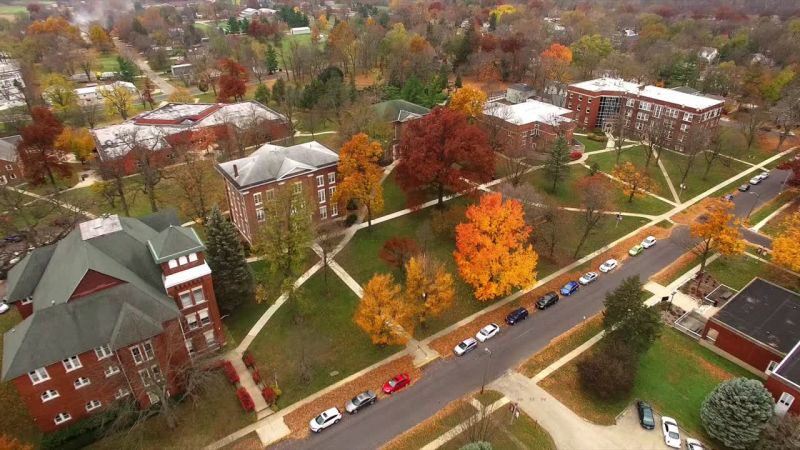And where the chaplain plays a role to this day
Reviewing the origins of Eureka College, a school founded in 1855, provides a history lesson that involves religion, an opposition to slavery, and education.
When Eureka, the county seat of Woodford County, was known as Walnut Grove in the 19th century, many of its earliest residents were religion-inspired abolitionists who came from Kentucky. As more members of their church settled in the area, they saw the need to educate their young people. That led to the formation of the Walnut Grove Seminary in 1849. The school was renamed the Walnut Grove Academy — the forerunner of Eureka College — when it expanded into a new building later that year.

The Walnut Grove Literary Institute was organized by students while waiting for the completion of the new building in 1849. The institute held weekly sessions that involved essays, declamations, orations and debates, noted a history of the college published in 1894.
Chaplain Bruce Fowlkes, an ordained minister in the Christian Church (Disciples of Christ) and Eureka’s chaplain since 2007, explained that teaching independence has always been an important part of the school’s history.
‘The belief was that women needed education as much as men’
— Chaplain Bruce Fowlkes
The original Church of Christ arose from the Restoration movement of the 19th century, he said. That movement’s goal was to unify all Christians in a single body following the teachings of the New Testament. Divisions sprung up around the time of the Civil War, and Eureka went with the Church of Christ (Disciples of Christ) movement, a more liberal faith opposed to racism and slavery, he said.

The goal at Eureka was to create a non-sectarian educational system where a liberal tradition was established from the start, Fowlkes said. Eureka was not only the first school in Illinois to admit women as equal partners when it came to educational opportunity but just the third in the country to do so.
“The belief was that women needed education as much as men, with a curriculum that was the same for both,” said Fowlkes.
“It’s always been important at Eureka that an education gives students tools to be a full, contributing member of society,” he said. “In the world of today, a world so polarized and fragmented, the need for Eureka is even greater.”
During the frontier period that launched Eureka College, “society flowed through the doors of the church. It doesn’t do that anymore,” said Fowlkes. “There’s no single pathway that people take anymore.
“The college curriculum is not controlled by the church,” the chaplain said of the Eureka program. While a division between church and educational state exists today at Eureka, there are still lessons to be learned from the past, he said.
“One of the radical things that Jesus taught us was to give away your power to others, especially the powerless.”
Fowles takes that concept to heart in his daily routine at the school. “My job is to find the people that have been marginalized, that have been held back in some way. I try to help the student that needs an advocate. I help them find their voice,” he said.
Today the church and school “cooperate by agreement,” said Fowlkes. Realizing that not many schools have a full-time chaplain, he said he relishes the opportunity to encourage students to be themselves and meet the challenges that come with college life.
“I’m so pleased now that students are so open about things now,” Fowlkes said. “Students aren’t relying on me to give them answers. If they’re not religious, I’m not going to lay religion on them.”
In more than 40 years of ministry, Fowlkes has served as a chaplain at Texas Christian University and held congregational positions in Arkansas, Missouri, Kentucky and Texas. Married to the Rev. Carolyn Roper-Fowlkes, a hospice chaplain, and with two college-age sons, Fowlkes deals with young adults both at home and work. “One (son) is at Monmouth University and the other’s here,” he said.
When he’s not counseling, listening or leading a discussion at Eureka College, Fowlkes has his hobbies, including woodworking, with his current focus on “a desk here at Eureka that’s likely to be one that Lincoln used. It’s falling apart.”
Ultimately, “I’d like to preserve it,” he said, much as Eureka College has preserved and perpetuated its story over the years, including the religious foundations upon which it was built and which inform and sustain it to this day.





